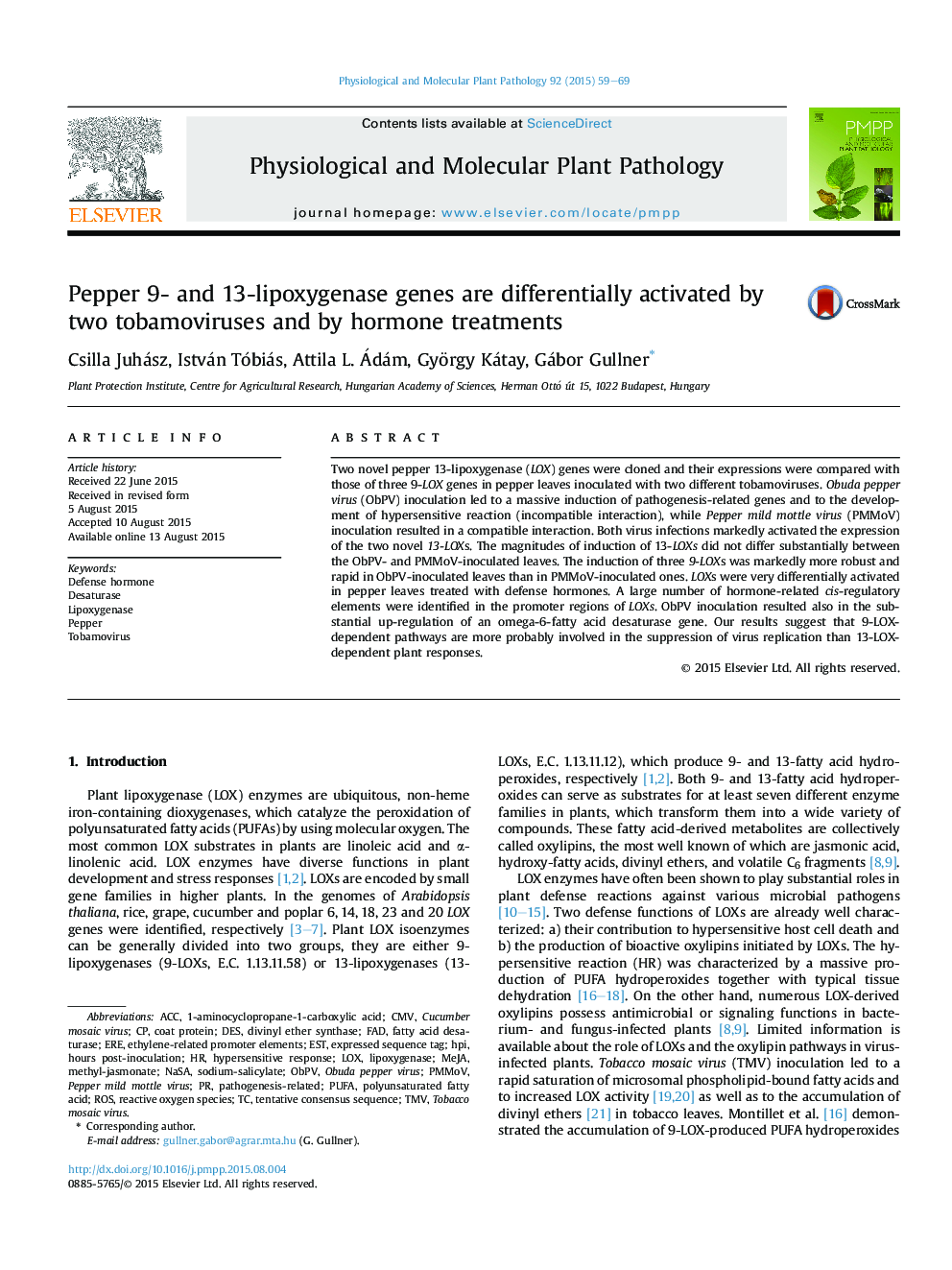| Article ID | Journal | Published Year | Pages | File Type |
|---|---|---|---|---|
| 2836245 | Physiological and Molecular Plant Pathology | 2015 | 11 Pages |
•Two novel pepper 13-lipoxygenase (LOX) genes were cloned and characterized.•Both 13-LOX genes were markedly up-regulated by tobamoviruses and defense hormones.•Activation of 13-LOXs is similar in ObPV- and in PMMoV-inoculated pepper leaves.•LOX promoters contain numerous disease- and hormone-responsive cis-acting elements.•Activation of 9-LOXs is more probably linked to resistance than that of 13-LOXs.
Two novel pepper 13-lipoxygenase (LOX) genes were cloned and their expressions were compared with those of three 9-LOX genes in pepper leaves inoculated with two different tobamoviruses. Obuda pepper virus (ObPV) inoculation led to a massive induction of pathogenesis-related genes and to the development of hypersensitive reaction (incompatible interaction), while Pepper mild mottle virus (PMMoV) inoculation resulted in a compatible interaction. Both virus infections markedly activated the expression of the two novel 13-LOXs. The magnitudes of induction of 13-LOXs did not differ substantially between the ObPV- and PMMoV-inoculated leaves. The induction of three 9-LOXs was markedly more robust and rapid in ObPV-inoculated leaves than in PMMoV-inoculated ones. LOXs were very differentially activated in pepper leaves treated with defense hormones. A large number of hormone-related cis-regulatory elements were identified in the promoter regions of LOXs. ObPV inoculation resulted also in the substantial up-regulation of an omega-6-fatty acid desaturase gene. Our results suggest that 9-LOX-dependent pathways are more probably involved in the suppression of virus replication than 13-LOX-dependent plant responses.
